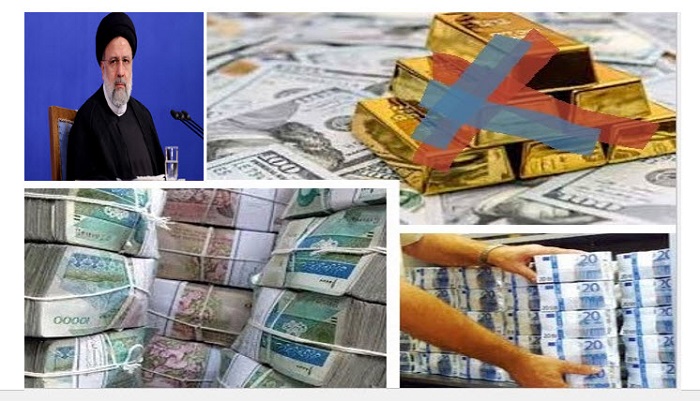
In his Tuesday remarks to members of the “university Basij,” Khamenei rejected the idea of having a referendum, suggested by the so-called reformist figures within the regime as the only way to save the mullahs’ rule.
He considered “privatization” as the only solution to the country’s economic crunch in the same speech. However, Khamenei’s wailing about the private sector’s interests once again shows that the regime has no solution for Iran’s financial problems and will result in further plundering of public assets.
In his speech on Saturday during Eid-al-Fitr’s prayer sermon, Khamenei acknowledged his failure to consolidate power in his regime and among the three branches, describing the cooperation between heads of the three branches as a vital strategy.
Following the November 2019 uprising that rattled his regime’s foundations, Khamenei realized that the slightest disunity in his regime could lead to the ruling theocracy’s demise. So, he began “consolidating power.”

With the dismissal and resignation of five key cabinet members, four Ministers, and the head of the Planning and Budget Organization, Raisi holds the record of changes in a cabinet in the last 44 years. Besides, there have been growing calls in the regime’s parliament for his impeachment.
Khamenei knows the regime’s best interests, as his destiny is tied to the system’s existence. He has clearly heard people chanting “Death to Khamenei” and “Poverty, corruption, high prices, we continue until regime change” and is aware of their unwavering determination to topple the clerical regime.
I salute the freedom-loving teachers who have risen up all across #Iran. By chanting, “Teachers would die but won’t submit,” they echo the cries of a nation who is fed up with the mullahs’ oppression and injustice. #IranProtests pic.twitter.com/YHy1amLsaU
— Maryam Rajavi (@Maryam_Rajavi) December 2, 2021
By blatantly rejecting the Iranian people’s right to self-determination about their country’s future, Khamenei tries to imply that he will not loosen his grip on power even a bit. Despite witnessing the country’s volatile society due to the regime’s decades of corruption, ineptitude, and oppression, those seeking a referendum are still trying to prevent the uprising from expanding by desperately attempting to use the so-called “system’s capabilities” as if their is a solution within a regime that the entire Iranian population wants to overthrow.
Watch how the regime in #Iran is adding to the momentum of the increasing poverty in the country and judge if #Khamenei is eventually going to pay the price for it. pic.twitter.com/odqSyGoNeE
— NCRI-FAC (@iran_policy) April 3, 2023
The consistency of the nationwide uprising in the last seven months, despite the regime’s severe crackdown, and the prospect of a more extensive and devastating wave of dissent have exacerbated the regime’s infighting, preventing Khamenei from consolidating power in his regime.
While Ali Khamenei is not known for exposing himself to criticism and refrains from public appearances when possible, he must acknowledge the challenges his regime faces to maintain power.
 MEK Iran (follow us on Twitter and Facebook), Maryam Rajavi’s on her site, Twitter & Facebook, NCRI (Twitter & Facebook), and People’s Mojahedin Organization of Iran – MEK IRAN – YouTu
MEK Iran (follow us on Twitter and Facebook), Maryam Rajavi’s on her site, Twitter & Facebook, NCRI (Twitter & Facebook), and People’s Mojahedin Organization of Iran – MEK IRAN – YouTu







